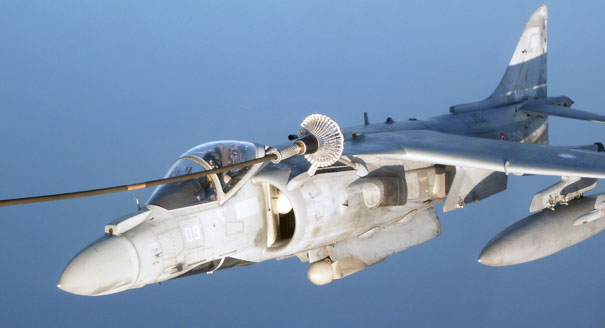
From David Abshire, Politico: [T]his Libyan intervention resulted in far fewer civilian casualties than either the Bosnia or Kosovo operations. Libya shows that the alliance, though expanded to 28 from 16 members, has grown more efficient — not less.
Former Defense Secretary Robert Gates’s comments on the distressing decline of European defense investment are warranted. But for all the complaints about the lack of burden sharing, we have just witnessed the first NATO military intervention where the U.S. was not forced to bear the brunt of operations.
By letting France and Britain take the lead, Obama avoided the usual anti-Americanism that has accompanied previous U.S.-led interventions. Endorsement of NATO’s involvement by the Arab League and Gulf States also helped the operation’s legitimacy.
Cold War nostalgists may insist that NATO has lost its absolute unity. But as someone deeply involved in the 1980s missile deployment debates, I saw that the alliance always disagreed over the severity of threats and the appropriate course of action.
Despite these disagreements, however, the alliance managed to win the Cold War without firing a shot. It shaped the strategic environment and allowing our respective militaries to train together and build critical relationships.
The end of the Cold War also allowed NATO to expand eastward — fostering stability and democracy in Central and Eastern Europe. The current diverse array of international security threats, combined with increasing constraints on national defense budgets, makes NATO’s cooperative aspects more critical not less.
While the U.S. has always been NATO’s historical leader, this leadership is usually most effective when it was indirect — as with Libya.
David Abshire was the U.S. permanent representative to NATO, 1983-1987. He is now president of the Center for the Study of the Presidency and Congress. He co-founded the Center for Strategic and International Studies in 1962. (photo: Reuters)
Image: reuters%208%2026%2011%20NATO%20jet.jpg
